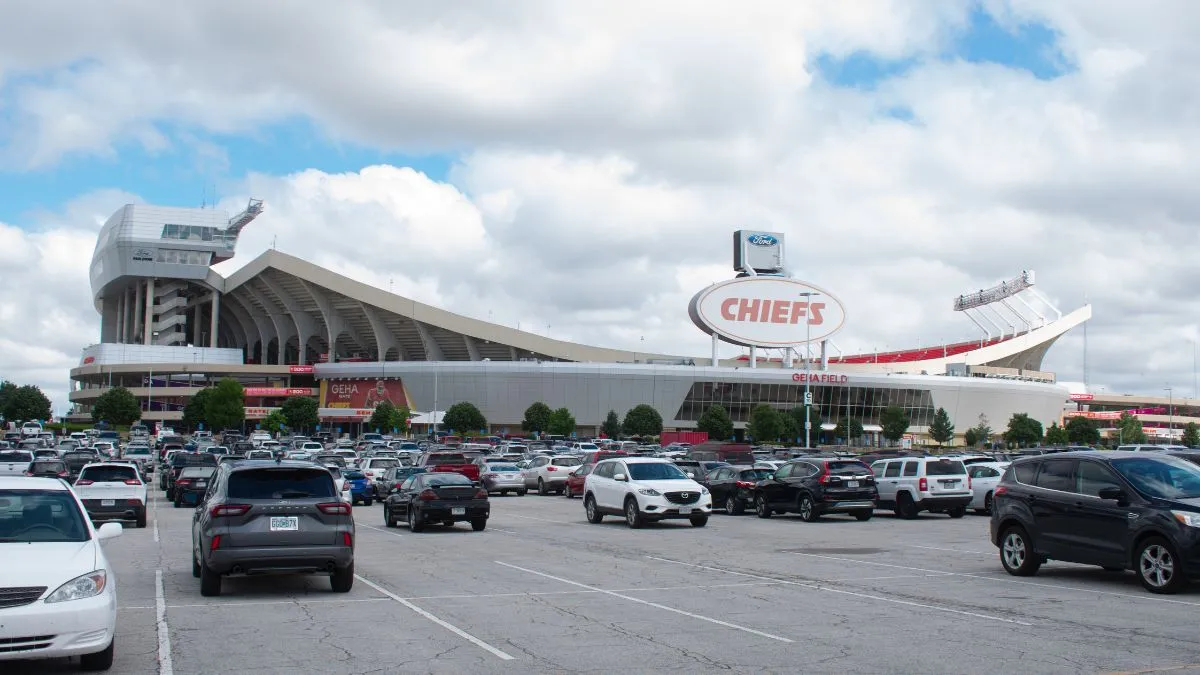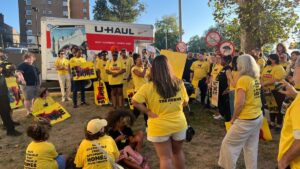12:00
News Story
2026 World Cup in Kansas City could strain housing market and displace homeless people
The 2026 World Cup will squeeze Kansas City’s already tight housing market in ways that could make shelter particularly scarce for homeless people.
Many thousands of soccer fans flocking to the region will need places to stay. But some housing experts say that the World Cup’s short-term impact on the housing market could prod the market to create more housing that would benefit the city long after the international crowd leaves town.
“You want to spend on public service infrastructure that has benefits beyond the event,” said Michael Frisch, professor of urban planning and design at the University of Missouri–Kansas City. “Ideally, that infrastructure should have broad impacts.”
How the World Cup could affect homelessness
Realtors say property owners are already converting their spaces into short-term rentals.
Sal Loiacono, owner of Better Builders Co., said that short-term rental prices will skyrocket by 2026. That was his experience when he attended the previous World Cup in Qatar.
“Prices were three times the typical rate,” he said.
The competition for apartments, in turn, likely will push up rents and make permanent housing less affordable. Frisch said that residents will want to avoid any leases that end the summer of 2026.
“Renters with leases that are up between May and August 2026 are going to be threatened with displacement,” he said.
Every country that bids to host the World Cup has to comply with a human rights policy and submit its own human rights strategy, a FIFA spokesperson told The Beacon.
Host cities must collaborate with housing rights groups to address potential housing issues, such as rising rent prices and possible evictions caused by the event. Cities are also asked to work with homeless rights groups to develop a plan for people living on the streets and find shelter for people displaced by the event.
The host nations of Canada, Mexico and the U.S. put together their strategies to ensure that the 2026 FIFA World Cup doesn’t worsen housing problems.
But in Brazil in 2014, up to 250,000 people were displaced to make way for construction tied to the World Cup. Similarly, thousands of migrant workers were evicted from their homes to make room for soccer fans when Qatar hosted in 2022.
Josh Henges, Kansas City’s homelessness prevention coordinator, said that major displacement should not be a problem in U.S. cities because no new stadiums or housing projects will need to be built.
“All of the infrastructure already exists,” he said.
But Stephanie Boyer, the chief executive officer of reStart Inc., said homeless and domestic violence agencies often put clients in hotels. With the World Cup, out-of-towners will take over those rooms.
Boyer said that Kansas City’s homeless population has been displaced for past sporting events. She is in talks with the city’s World Cup committee to make sure that doesn’t happen this time.
“What we don’t want to see is a repeat of what happened when the NFL Draft came to town (in 2023) and encampments started disappearing,” she said.
The city’s encampment policy requires police or city officials to give service providers and encampment residents at least 48 hours notice before clearing an area. But officials cleared out encampments without notice in preparation for the NFL Draft, Boyer said.
That sudden action prevents outreach workers from contacting homeless people, causing case managers to lose track of clients.
“They could have been close to getting that person housed and now they’re nowhere to be found and they have no way to contact them,” she said.
Long-term impact of 2026 World Cup in Kansas City
Frisch from UMKC said that the World Cup’s impact on affordable housing in Kansas City depends on the city’s approach to development and policies. He stressed that long-term benefits come from investing in public needs.
“If they serve private needs, like the owners of sports teams, then there’s not going to be a public impact,” he said.
Past host cities have leveraged large sporting events to create long-term housing benefits. Barcelona used the 1992 Olympics to improve infrastructure and rebuild run-down areas, converting the Olympic village into mixed-income housing. Atlanta adopted a similar strategy after the 1996 Olympics. However, both projects also resulted in widespread gentrification and displacement of low-income residents.
Ryana Parks-Shaw, Kansas City’s mayor pro tem, said that City Hall has not begun discussing the World Cup and homelessness. But she said that as long as the city’s strategy to end homelessness by 2030 remains on track — which includes the construction of a low-barrier shelter — then Kansas City should be well-prepared for the World Cup.
Shaw said that increasing affordable housing stock over the next two years will curb displacement.
That includes establishing a citywide land trust, a nonprofit model that keeps housing affordable by acquiring land and separating a resident’s ownership of a home from that land, she said.
That land trust can help sell the 3,000 vacant properties that the land bank commission is looking to use for affordable housing, Parks-Shaw said.
She said the city’s housing locator, which connects residents with property owners in need of tenants, will also help to get stock off the market. Landlords can no longer turn away tenants merely for using rent subsidies. And it’s spending $1 million to entice landlords to take in more low-income and high-risk tenants.
“I heard from our housing providers that on any given day, 8 to 10% of their housing stock sits vacant,” she said. “Our goal is to take advantage of that housing stock that sits vacant and get individuals to lease those homes. That will be in full effect by the time the World Cup comes.”
This article first appeared on Beacon: Kansas City and is republished here under a Creative Commons license.![]()
Our stories may be republished online or in print under Creative Commons license CC BY-NC-ND 4.0. We ask that you edit only for style or to shorten, provide proper attribution and link to our website. AP and Getty images may not be republished. Please see our republishing guidelines for use of any other photos and graphics.





